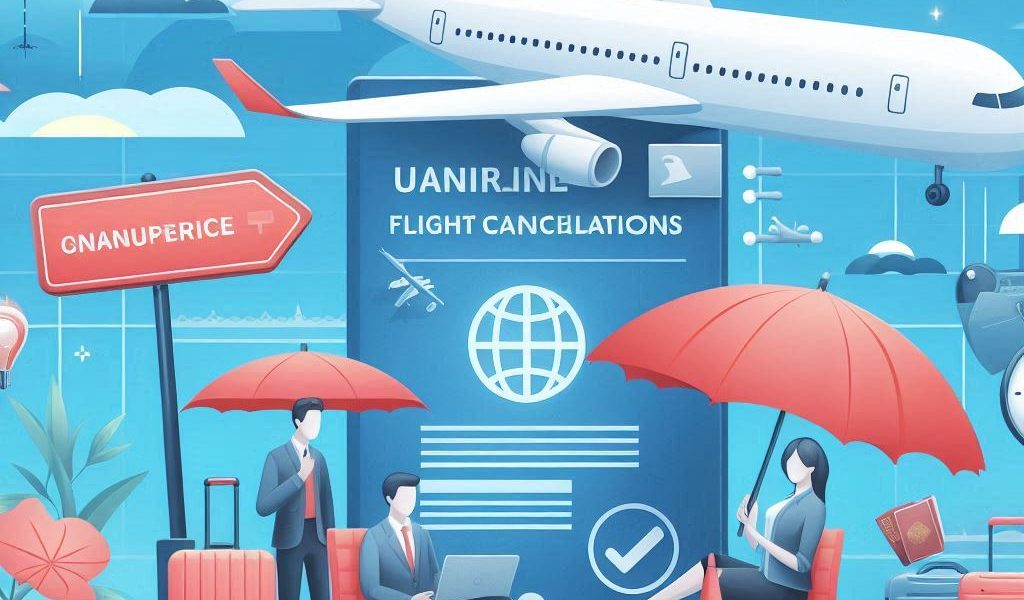Introduction
Flight cancellations can disrupt even the most carefully planned trips, leading to financial losses and unexpected inconveniences. Whether due to bad weather, airline issues, or personal emergencies, canceled flights can leave travelers stranded and frustrated.
This is where travel insurance comes in—offering coverage for flight cancellations under specific conditions. However, not all policies provide the same level of protection, and understanding the details is crucial before purchasing a plan.
In this guide, we’ll explore:
✅ When travel insurance covers flight cancellations
✅ What situations are not covered
✅ How to file a claim for reimbursement
✅ Tips to choose the best travel insurance policy
By the end, you’ll know exactly what to look for in a flight cancellation policy and how to protect yourself from unexpected trip disruptions.
Understanding Flight Cancellation Coverage in Travel Insurance
What is Flight Cancellation Coverage?
Flight cancellation coverage in a travel insurance policy provides reimbursement for prepaid, non-refundable expenses when a flight is canceled for covered reasons. It helps you recover money spent on:
- Airline tickets
- Hotel reservations
- Pre-booked tours and excursions
- Transportation costs (rental cars, transfers, etc.)
However, not all flight cancellations qualify for reimbursement. Insurance providers outline specific conditions under which they will cover the costs.
When Does Travel Insurance Cover Flight Cancellations?
1. Personal Medical Emergencies
If you or a covered travel companion fall ill or get injured before your trip, and a doctor advises against travel, you may qualify for a full reimbursement of your prepaid expenses.
2. Death of a Family Member or Travel Companion
If an immediate family member or travel partner passes away before your departure, most travel insurance policies provide full reimbursement for your trip expenses.
3. Severe Weather Conditions
If a flight is canceled due to hurricanes, snowstorms, or other extreme weather events that make travel unsafe, your insurance will likely cover the costs of rescheduling or reimbursing prepaid expenses.
4. Airline Strikes or Operational Issues
If an airline experiences a strike, bankruptcy, or mechanical failure that leads to cancellations, your policy may cover the costs—depending on the insurer’s terms.
5. Natural Disasters at Your Destination
If an earthquake, flood, or wildfire occurs at your travel destination, making it unsafe or impossible to visit, your travel insurance policy may cover cancellation costs.
6. Legal Obligations
If you are summoned for jury duty or required to appear in court, and this conflicts with your travel dates, travel insurance may reimburse your losses.
7. Work-Related Cancellations (If You Have Work Cancellation Coverage)
Some policies provide “cancel for work reasons” coverage, which may reimburse your expenses if:
- Your employer unexpectedly cancels your leave.
- You get laid off unexpectedly.
- You must attend to an urgent work matter.
When Does Travel Insurance NOT Cover Flight Cancellations?
It’s equally important to understand when your claim may be denied. Travel insurance does not cover every possible cancellation.
1. Airline-Initiated Cancellations Without Specific Reasons
If the airline cancels your flight for operational reasons (e.g., overbooking, staff shortages), you must seek a refund from the airline—insurance won’t cover this.
2. Change of Mind or Personal Preferences
If you decide not to travel due to personal reasons (fear of flying, change in plans), your claim will be denied—unless you have “Cancel for Any Reason” (CFAR) coverage.
3. Pre-Existing Medical Conditions (Unless Covered)
If your flight is canceled due to a pre-existing medical condition, insurance won’t cover the expenses unless your policy includes coverage for such conditions.
4. Travel Advisories or Fear of Travel
If you cancel a flight because of political instability, terrorism concerns, or general fear, insurance typically won’t reimburse you unless the government issues an official travel ban.
5. Canceling Due to Minor Illnesses
Insurance companies require medical documentation. If you cancel a flight for a minor cold or headache without proof of a serious medical condition, your claim may be denied.
6. Delays Instead of Full Cancellations
If your flight is delayed but not fully canceled, most insurance plans won’t cover additional expenses unless you have travel delay coverage.
How to Choose the Right Travel Insurance for Flight Cancellations
To ensure you get the best coverage, consider these factors before buying a travel insurance policy:
1. Look for Comprehensive Cancellation Coverage
Check the policy details to confirm which cancellation reasons are covered. Ensure it includes medical emergencies, severe weather, and airline disruptions.
2. Consider “Cancel for Any Reason” (CFAR) Coverage
If you want maximum flexibility, CFAR insurance allows you to cancel for any reason (even personal ones) and still get a partial refund—usually 50-75% of your prepaid expenses.
3. Check the Maximum Reimbursement Limit
Each policy has a coverage limit on trip cancellations. Ensure the amount is sufficient to cover your total trip costs.
4. Read the Fine Print on Exclusions
Policies vary widely—some cover natural disasters but not political unrest. Always review exclusions before purchasing.
5. Compare Policies from Different Providers
Don’t settle for the first option—compare multiple insurance providers to find the best coverage at the right price.
How to File a Travel Insurance Claim for Flight Cancellation
If your flight is canceled and covered by insurance, follow these steps to successfully file a claim:
1. Contact Your Insurer Immediately
Notify your insurance company as soon as your flight is canceled. Many insurers have time limits for filing claims.
2. Gather All Required Documents
- A written cancellation notice from the airline
- Medical reports (if cancellation is due to illness)
- Death certificate (if due to a family member’s passing)
- Proof of prepaid, non-refundable expenses (flight tickets, hotel bookings, etc.)
3. Complete the Claim Form Accurately
Fill out the insurance company’s claim form with correct details. Any missing or incorrect information may delay or deny your claim.
4. Submit Your Claim on Time
Check your policy’s claim deadline and submit all necessary documents before it expires.
5. Follow Up on the Claim Status
Track your claim progress via the insurer’s website or customer service. Keep copies of all communication.
Final Thoughts: Is Travel Insurance Worth It for Flight Cancellations?
Yes—if you want financial protection against unexpected trip disruptions. Travel insurance can help recover your money if you cancel due to:
✅ Medical emergencies
✅ Weather-related cancellations
✅ Family emergencies
✅ Work-related conflicts (if covered)
However, it won’t cover airline-initiated cancellations, last-minute change of mind, or fear-based cancellations—unless you purchase CFAR insurance.
Before buying a policy, always:
✔ Compare different plans
✔ Check coverage limits and exclusions
✔ Read customer reviews for claim success rates
With the right travel insurance, you can travel confidently, knowing you’re protected against flight cancellations and unexpected setbacks.




